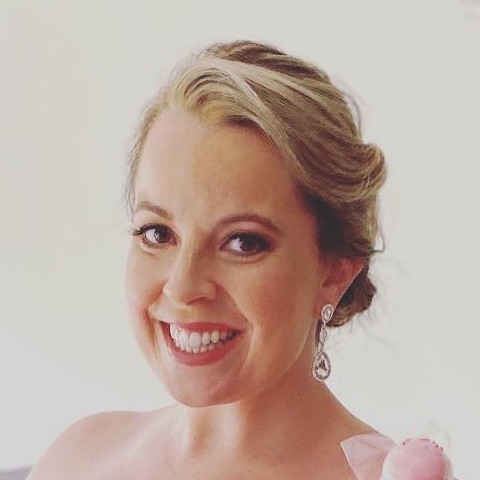Drug Addiction: Commonly Abused Prescription Medication
Drug addiction does not always manifest itself in the abuse of substances such as heroin, cocaine, or alcohol. Instead, others may turn to prescription medication with addiction-forming characteristics. These medications typically include painkillers which are prescribed by medical professionals only for a set period of time. If you’re suffering from an injury or illness and authorized to purchase a particular amount of prescription medication, always abide by your doctor’s guidelines.
What are the most commonly abused prescription drugs?
You should never take more medication than prescribed by your healthcare provider, nor should you stop taking them before you have to. As some prescription drugs are notorious for being habit-forming, developing dependency is all too easy.
The cycle typically begins when a patient seeks more of the medication to receive the same level of treatment. The more you consume a prescription drug, the less effectively it performs. As a result, patients exploit high dosages to mimic the initial dulling or enhancing sensation.
Below are the most ordinarily abused types of prescription drugs:
Depressant Drugs
Psychiatrists oftentimes prescribe depressant drugs to patients to lessen instances of severe anxiety and improve sleep quality. Some of the prescription medications they prescribe act as sedatives to help bring patients back down when they become uncontrollable or manic. However, there are times when these drugs move past being helpful when used on occasion as instructed and into the realm of habit-forming when continuously used.
Some of the most common depressants include:
- Barbiturates (Amytal, Seconal, Phenobarbital)
- Benzodiazepines (Ativan, Valium, Xanax, Klonopin)
- Sleep medications (Ambien, Lunesta, Sonata)
- Opioids and morphine derivatives
Opioids
Opioids are pain-relieving substances made from poppy plants. When the medication travels through your bloodstream and attaches to receptors in the brain cells, they release signals that hinder your perception of pain. In low doses, opioids tend to make patients sleepy or calm. In higher doses, they can affect breathing and heart rate, eventually leading to death.
Common types of opioids include:
- Codeine (certain types of Tylenol, Empirin)
- Morphine (Duramorph)
- Methadone (Methadose, Dolophine)
- Fentanyl (Sublimaze, Actiq)
- Other stimulants
Stimulants
Often referred to as “uppers,” stimulants work to temporarily improve awareness and boost energy. Following the initial “up,” stimulants can leave patients feeling exhausted, apathetic, and depressive. If abused over time, stimulants can create feelings of hostility or paranoia, leaving patients to become a danger to themselves and others.
Usually-prescribed types of stimulants include:
- Amphetamines (Dexedrine, Adderall, Biphetamine)
- Methylphenidates (Concerta, Ritalin)
How to Determine Whether or Not You’re Experiencing Drug Addiction
When prescribed a foreign substance by your doctor, it’s crucial that you always adhere to the given instructions. You should also pay close attention to how the medication makes you feel—do you get drowsy or irritable? Do you feel the need to take more than the prescribed dose? If so, give your doctor a call and discuss the next steps with them.
Depending on the severity of your forming addiction, they might recommend an intensive outpatient program at a prescription drug addiction rehab facility or a more straightforward at-home medical detox. These decisions should always be made in conjunction with a medical professional as mishandling the situation can lead to serious, lasting problems.
The Connection Between Mental Illness and Drug Addiction
For thousands of individuals all over the country, existing mental conditions can exacerbate dependency on particular medications. In this case, it’s best to seek out an appropriate drug rehab treatment program with help from your healthcare provider. Should they need to, they can recommend a dual diagnosis treatment for mental illness and substance abuse.
By treating both the addiction itself as well as any underlying mental conditions that are worsening the problem, you have a better chance of achieving and maintaining sobriety. With this comes the ability to get back to living the life you deserve.
Recover From Your Prescription Drug Addiction at Inner Voyage
If you’re experiencing prescription drug addiction or watching a loved one struggling with it, don’t hesitate to reach out to a professional Woodstock recovery center for help. Your healthcare provider can work with you to find and set up a suitable program to get you on the path to recovery.
At Inner Voyage Recovery, we have a team of professionals that have been in your shoes, allowing us to approach drug addiction with empathy, expertise, and experience. We take the time to prioritize building trust and fostering a productive relationship with patients for lifelong, continued success beyond addiction. If you’re ready to take the next step towards a life of sobriety, give us a call today at (470) 523-4606.
If you or someone you know needs any of our services
Please call us at 470-863-8259
Please fill out information below to receive a callback from one of our admissions specialists today!
Author
-
Emily Rowe is the Clinical Director at Inner Voyage Recovery Center. She is a Licensed Master of Social Work with 8 years of experience in clinical settings covering one on one sessions, family sessions, group sessions, crisis interventions and suicidal prevention. Recognized by leadership and colleagues as forward thinking, creative, empathetic, active listener and effective.
Inner Voyage prepares you to experience recovery, even if you’ve relapsed in the past, and to help you re-enter the world as your healed self. Call today to begin your Inner Voyage journey.
What We Treat
How We Help
© 2024 InnerVoyage All rights reserved.
Powered byRed Cardinal Digital Marketing
 Mon - Fri 8:00 AM to 6:30 PM
Mon - Fri 8:00 AM to 6:30 PM
